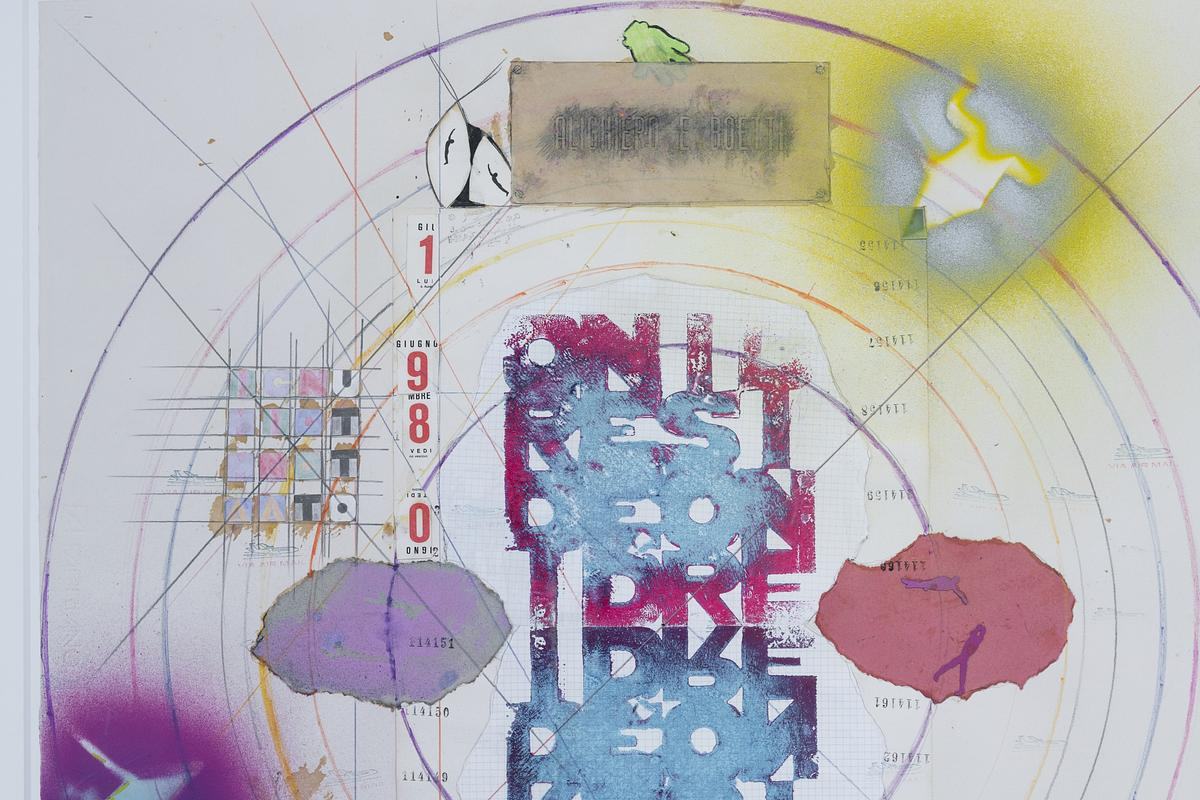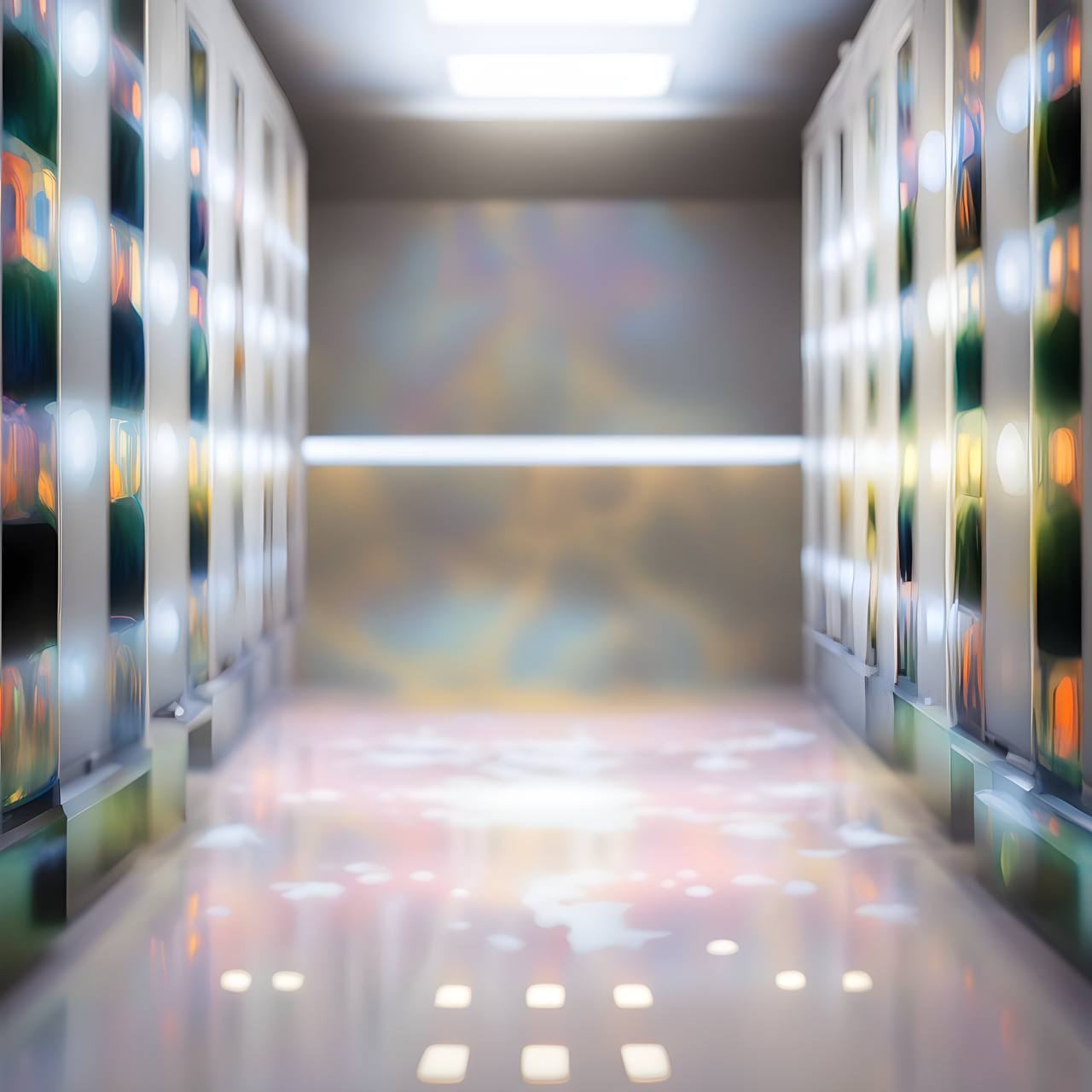
The project brings the practices of the Italian artist Alighiero Boetti and the contemporary Russian artist Ellina Gennadievna into a dialogue about how consciousness and memory form, preserve, and reproduce systems of knowledge and experience.
The project brings the practices of the Italian artist Alighiero Boetti and the contemporary Russian artist Ellina Gennadievna into a dialogue about how consciousness and memory form, preserve, and reproduce systems of knowledge and experience.
Photo: Daniel Annenkov
Ellina studies points of contact between technology and art: she examines virtual space, multiplayer video games, artificial intelligence, and new devices relating to human psychology, behaviour, and imagination. Her new title is a contemplation of the distance between computer and human memory.
Boetti is primarily interested in the organisation of different systems, codes, and classifications: he seeks to make sense of order and chaos, find systems in errors, and reveal the economy and practice of artistic and craft work. The fundamental theme for the artist is the game, which takes place everywhere: alphabet brain-teasers, linguistic games, mathematical puzzles, changing maps, counters, calendars, indexes, codes, even rugs and embroidery—Boetti constantly sets rules only to break them in order to invent new ones. Boetti’s aim is not to create a subjective world from scratch, but rather to devise a system capable of generating worlds itself; not by bringing in new elements, but through an endless reassembling of existing fragments. The attempt to automate artistic production could not exist separately from the reality that was contemporary to Boetti—the first cybernetic breakthroughs and computer innovations.
Polarisation: Ellina Gennadievna and Alighiero Boetti is an installation created by Ellina Gennadievna using Boetti’s works. One might call Polarisation a generative model in two parts: each one of Boetti’s brainteasers serves as a prompt for a new recursive game with Ellina’s neural networks, and the images created by these neural networks become, in turn, prompts for the viewer’s imagination.
The installation is symmetrical and separated by a tunnel: its structure looks distorted, as it would in the virtual world or in a space of confabulation and false memory. One half of the hall contains original works by Boetti, the other half contains a photographic reproduction of the first, transformed by a neural network. The neural network not only disrupts the strict symmetry, creating barely detectable differences in the space, but also creates its own images or “memories” of viewers. The camera system records visitors’ faces, reads their emotions, and turns photographic portraits into new, distorted images that are then displayed on screen.*
*Images produced and obtained during this exhibition are not stored and are not used outside this exhibition. The processing of visitor images is carried out by software algorithms. By visiting this exhibition, you consent to being photographed and to the use of the resulting image as part of the artwork. If it is possible that you will be negatively affected by these proceedings, we recommend that you refrain from visiting this exhibition.
Ellina Gennadievna thus studies the process of reconsolidating human memory: what takes place when memories are retrieved, edited, rewritten and replaced. Our memories are not a reliable archive, but a set of rewritten, repeated versions, interpretations, and distortions. One part of Ellina Gennadievna’s work is a film based on interviews with experts on the physiology and genetics of human memory, the memory of neural networks, and the memory of bees, aromatic mnemonics, and neural marketing systems.
Polarisation, 2023. Work material.
Courtesy of the author
Ellina Gennadievna (b. 1989, Kazan) is an artist, programmer, curator, and educator. Graduated from the department of applied mathematics and artificial intelligence at the faculty of computer mathematics and cybernetics of Kazan University, and then studied at the workshop of interactive, communicational and mixed media at the Rodchenko Moscow School of Photography and Multimedia. Ellina Gennadievna’s art works are built around the interaction between organic and inorganic nature, virtual and real environments, systems, errors, and entropy. Using technologies of virtual and augmented reality, 3D-modelling, microcontroller programming and game mechanics, Ellina Gennadievna creates imaginary worlds and dystopias which serve as a basis for exploring the contradictions contained in the very nature of technology.
Alighiero Boetti (1940–1994) was an Italian conceptual artist. He began his career as a member of the art movement Arte Povera (“Poor Art”), but left it in the early 1970s to elaborate his own artistic method. Besides an interest in systems, maps, and classifications, Boetti developed and expanded the very idea of the possibilities and techniques of drawing, adding new dimensions to it—economic, political, and media elements, supplementing drawings with texts, calculations, stamps, stencils, photocopies, mail art, and stationery stickers. He was one of the first conceptual artists to study the culture and craft traditions of countries outside Europe. In 1971–1980, he lived and worked in Afghanistan and Pakistan, where he founded an artistic commune and set up a workshop for making rugs, kilim carpets, and embroidery. Here, he created his famous series of one hundred and fifty embroidered political maps of the world (Mappe, 1971–1994): each of the maps recorded the swiftly changing state borders of those years, with colour and decorative solutions provided by local artisans.
Curator
Katerina Chuchalina
Ellina Gennadievna’s project software
Fedor Balashov, Roman Vagin
Fusion by Ellina Gennadievna production team
Nikita Kozyr, Nikita Sevastyanov, Mikhail Smolko, Vera Vishnevaya, Alexei Vyatkin
Architects
NOVOE Architects
Art logistics and registration
Daria Krivtsova
Lighting
Ksenia Kosaya
Technical production
Andrey Belov, Aleksandr Dolmatov, Artem Kanifatov
Producer
Sasha Chistova
Accessibility and inclusion curators
Vlad Kolesnikov, Oksana Osadchaya, Vera Zamyslova
